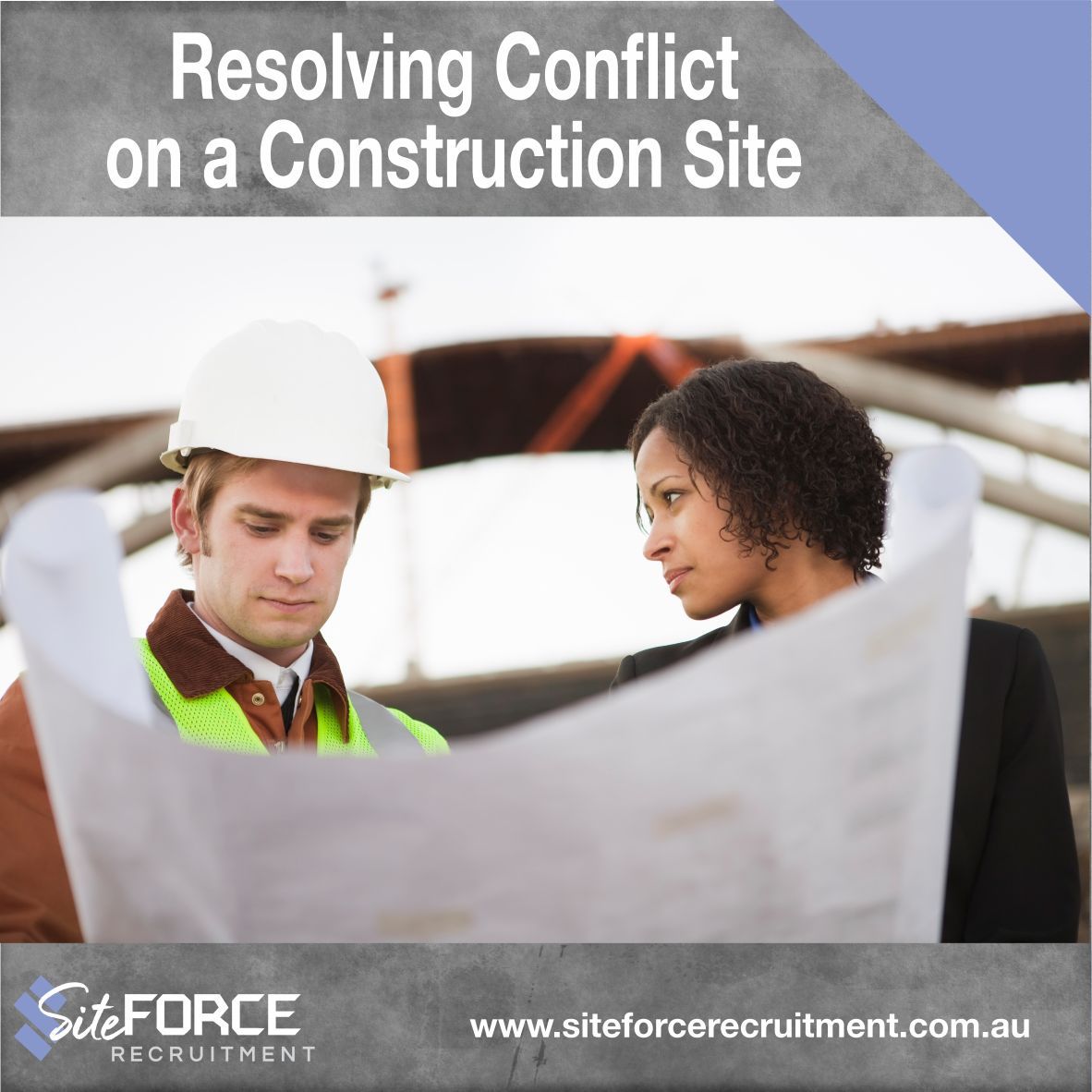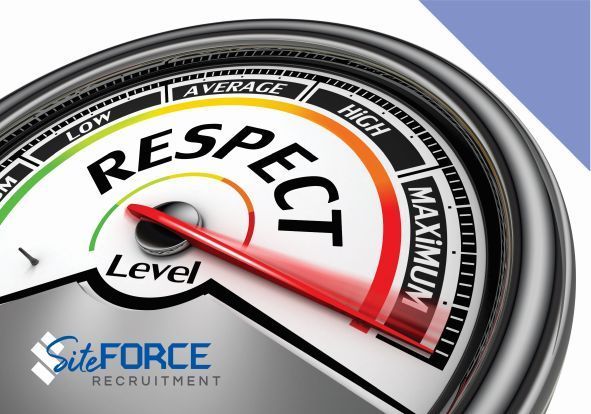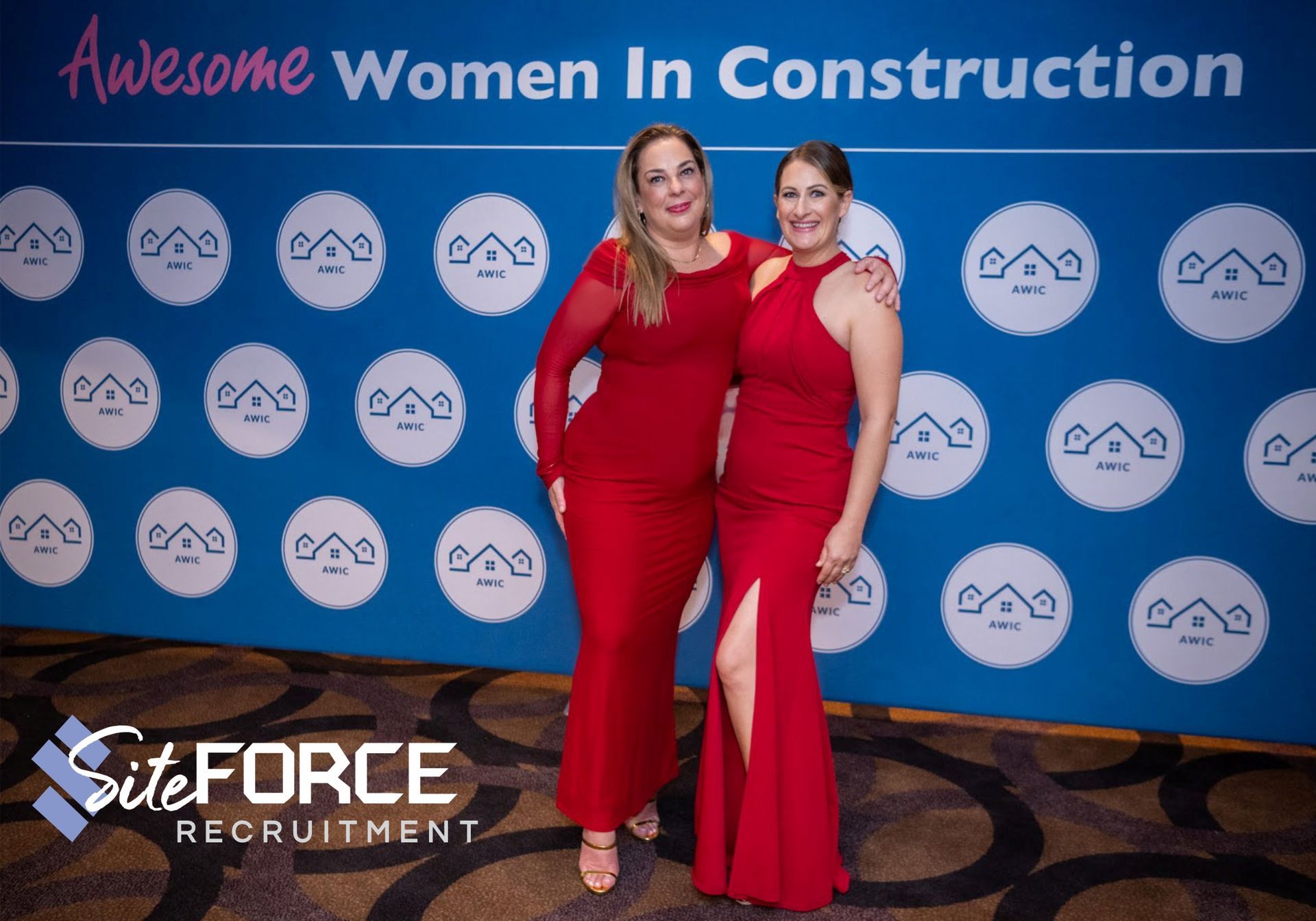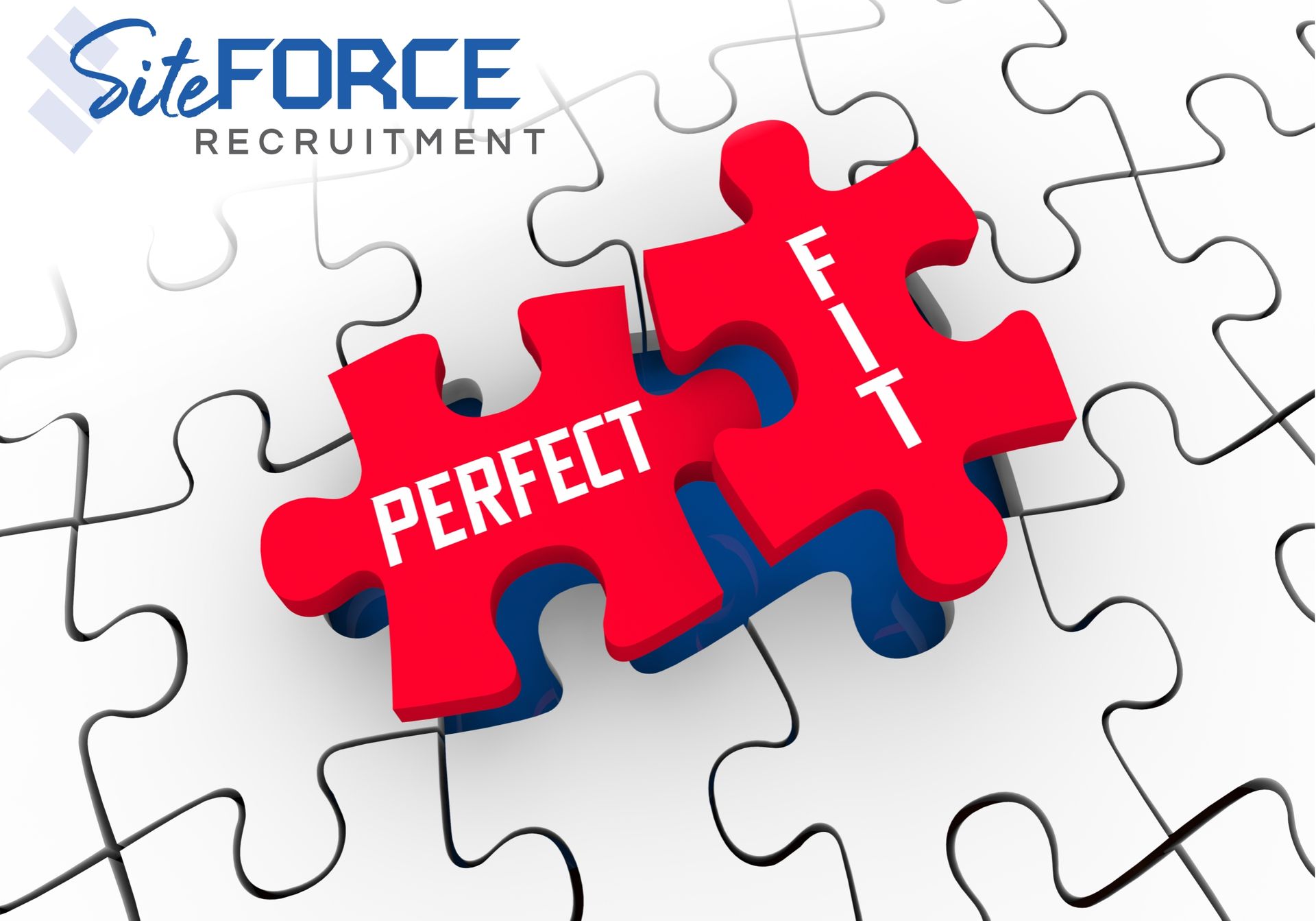Resolving Conflict on a Construction Site
Managing Incompatibility, Disagreement or Dissonance on Site

The construction industry in Australia is constantly evolving in successfully managing projects and people. There are emerging challenges regarding effectively managing the personnel, health and safety, and project outcomes in terms of time, cost and quality.
Within the workplace, it is believed that emotional intelligence (EI) can help with conflict resolution, build a collaborative culture, motivate other workers and help create psychological safety within working teams.
Conflicts on the construction site are a common occurrence. Disputes and disagreements will arise when multiple parties, such as workers, general contractors, owners, architects, and subcontractors, are working together to complete a project. These stakeholders have different opinions and interpretations of how things are supposed to be done, and often teams themselves have different agendas they are following. Those differing opinions and agendas often lead to conflicts.
Remember, the goal of any construction project is to see the successful completion of the job on time and within budget. When conflicts arise, it can seriously threaten achieving that goal and throw out timing and cost.
Resolving conflicts can be challenging. Conflict is defined as "an interactive process manifested in incompatibility, disagreement or dissonance within or between social entities". From an organisational perspective, conflict is a social phenomenon that arises due to disagreements between individuals or groups with personal or collective objectives that interact within a shared environment.
In most construction projects, these issues are common occurrences. Personnel in managerial positions are responsible for addressing these issues for personal and collective success for better work-related performance, efficiency and results. The ability to work through conflict cannot be underestimated.
It all comes down to making the best business decision to keep the project moving forward while providing a psychologically safe environment for your teams. To get the best outcome, this requires a set of personal and social competencies for perceiving, understanding, using and managing emotions to interact and influence others (and your own emotions). EI has become widespread within organisations because of its ability to impact the individual and the performance of others within their organisations.
Here are a few tips for resolving conflicts on the construction site.
1. Don't Ignore the Conflict
Avoiding conflict is one style you can employ – but it is not practical and usually only prolongs the pain. You can't just bury your head in the sand and hope the conflict resolves itself. Addressing the conflict head-on and working toward a quick and amicable resolution is the best way to keep the project on track.
Even a small dispute that may appear inconsequential can balloon into a more significant problem if it goes unresolved. If you allow the parties involved to work it out independently, you still need to follow up and ensure there aren't any lingering issues. Take action early to avoid further complications down the line.
2. Get to the Root of the Matter
Determining the underlying issues causing the conflict is essential to find the best solution. Conflicts are often caused by different interpretations of schedules, plans and specs, change orders, poor communication, personality conflicts or a clash of agendas. There can be an assumption that everyone is working toward the same goal, but asking the right questions can sometimes unfold agendas that conflict with the best interests of others or the organisation.
Actively listening to the opposing party or parties to understand where they are coming from or why they think or feel a certain way is the key to resolving disputes. This demonstrates to the opposing party that their opinions matter and that you are committed to working with them to resolve the issue.
3. Check Your Emotions at the Gate
Conflicts can escalate quickly from a simple disagreement to a shouting match. Whilst passion is to be acknowledged; you need to demonstrate that you are in control of yourself when in disagreement. You will erode trust if you are seen as a 'hot head'. Having a lively debate is one thing, but the ability to defuse a situation before it escalates is essential on a site.
Keeping your emotions in check will earn you respect. Showing a willingness to view the world as happening from a perspective other than your own will often bore out a negatively skewed reaction from whoever you are engaging with.
Resolving conflicts is about making the best business decision for the project, not personal feelings. Both parties should sit down and stay focused on developing a solution that is in the project's best interest.
If this is not happening, a deeper dive may be needed into any side or alternate agenda the other person is running, if it is not aligned with the safe success of the project and the people involved in delivering the results.
4. Behave 'Above-the-Line'
Simply, people who behave 'above the line' take responsibility, ownership and accountability at work, and those below the line are inclined to blame, shame and justify. Below-the-line behaviour refers to behaviours or attitudes that you take in the heat of the moment that you may come to regret in the future.
The 'old days' of 'my way or the highway buddy' behaviour doesn't belong in the industry and is a quick way to kill a good working relationship for your business, or your chances of gaining employment in the industry in the long run.
Construction is all about cooperation and collaboration. When conflict arises, it's not always a matter of one party being right, and the other being wrong. Sometimes the best solution is somewhere in the middle, and you may have to give a little to get a little. Be willing to compromise and work together to solve the problem. Of course, there are some non-negotiables regarding resolving conflicts, like following safety rules and regulations or adhering to building codes.
5. Be Clear in Your Communications
Make sure that expectations are clearly communicated to everyone on the project, as poor communication or lack of information on sites often leads to conflict or poor performance. Keep everyone on the same page and up to date with any changes or alterations to the project or schedule.
Resolving conflicts doesn't always result in a win-win situation for all involved. It's essential that once a resolution has been decided upon, everyone involved gets an explanation and is clear on what is expected moving forward. They might not always agree with the decision, but providing a reasonable explanation and following up will go a long way in accepting the decision.
Resolving conflicts can lead to a better understanding or a new way of doing things that improve the overall project.
6. Employ for Collaboration
A study on emotional intelligence levels in construction employees cites that the most successful conflict resolution on construction sites had managers whose dominant conflict management style was collaboration and compromise. These participants had a higher level of self-awareness and self-management.
Highly successful construction managers who employed emotional intelligence in the work environment served as a mentor for their subordinates regarding how to manage their emotions and resolve daily work conflicts. The study recommended that construction can prioritise hiring innovative and competent construction managers whose conflict management styles and emotional intelligence levels are compatible with the organisational culture and overall safety objectives.
At SiteForce Recruitment, we engage our workforce to deliver exceptional results. We use a high level of emotional intelligence, collaboration and clarity in hiring and developing top talent to deliver a positive differentiation in the construction industry.
Related articles:
TCQ Tips - Delivering Results On Time: What stops you?
I Want to be the Best [fill in the blank]: Below the Line -v- Above the Line
Construction Cowboys: How to Spot and Avoid Them
SiteForce Recruitment specialise in labour-hire and permanent recruitment in the construction industry. We are committed to valuing people, safety and well-being, collaboration, trust and of course – results!
CONNECT with us via our contact page or bookings links on our website if you are looking to recruit for, get your dream job, or join our amazing labour force team.
#siteforcerecruitment #recruitment #labourhire #brisbanejobs











